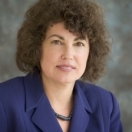
Every April, we recognize Sexual Assault Awareness Month. This year, with rape in the headlines nearly every day, we speak out with even greater urgency to honor survivors and prevent sexual violence.
We know the devastating statistics: 1 in 5 women and 1 in 71 men have been raped in their lifetimes. That’s 18 million women in this country who have been raped, and more than 1 million rapes that occur every year. The vast majority of these assaults occur when the victims are under the age of 25, and those under the age of 18 are at the greatest risk. These numbers are real, but they don’t tell the whole story. They don’t tell of the broken trust when the attacker is a friend, a trusted colleague, or a family member. They don’t tell of the suicidal feelings, the depression, or of the PTSD. And, they don’t tell of the courage survivors demonstrate when they work every day to put their lives back together.
Across the federal government, we are working to support survivors and to prevent sexual violence. Last year, the Department of Justice modernized the definition of rape used to collect our nation’s crime statistics. This year, the Department of Justice is working with law enforcement agencies to implement this change and develop new guidelines for investigating sexual assault cases. The Office on Violence Against Women is funding training that will help communities address their backlogs of rape kits and improve prosecution of sexual assault crimes. The Office of Victims of Crime is supporting the development of a telemedicine center that will help bring sexual assault forensic exams to victims in rural and isolated communities.
Two years ago, the Vice President announced the winners of the Apps Against Abuse, a challenge to app developers to use this technology to help prevent dating violence and sexual assault. Today, one of those winners - Circle of 6 - had reached 55,000 downloads in 26 countries and just announced a customized version of their app for use in India.
On March 7, President Obama signed the reauthorization of the Violence Against Women Act into law. This legislation is ground-breaking in its approach to sexual assault. States must set aside funds to develop programs that meaningfully address rape and sexual assault including those committed by strangers, acquaintances, and intimate partners as well as alcohol and drug facilitated rapes. This means more training for law enforcement and prosecutors and more resources for victim services. College campuses must provide orientation programs to new students about dating violence and sexual assault and must develop clear, written policies about how these cases will be handled. Federally subsidized housing programs must protect sexual assault victims from being evicted or denied housing due to the assault committed against them, and must help a victim transfer to another housing unit if necessary.
Government can’t do it all, and nowhere is private sector support more important than on issues like sexual violence. We applaud the work of Mariska Hargitay and the Joyful Heart Foundation to address the rape kit backlog, and of the No More Campaign working to raise awareness about domestic violence and sexual assault. Finally this April, we honor the advocates who devote their lives to serving victims and survivors.
Together, we are working to change the culture so that one day, we will end sexual violence.
Lynn Rosenthal is the White House Advisor on Violence Against Women


